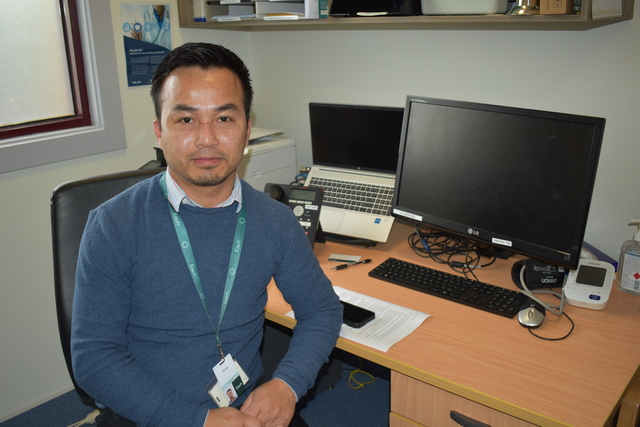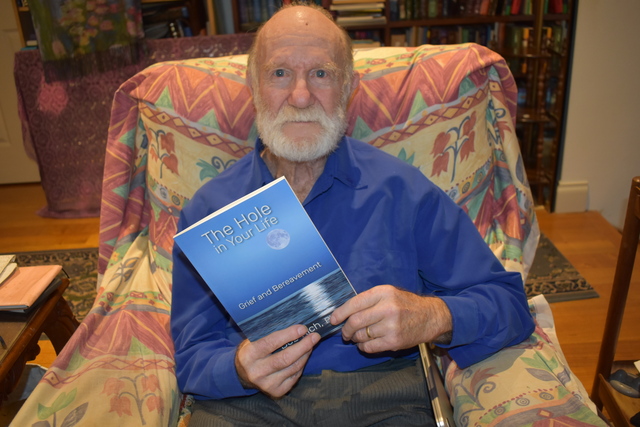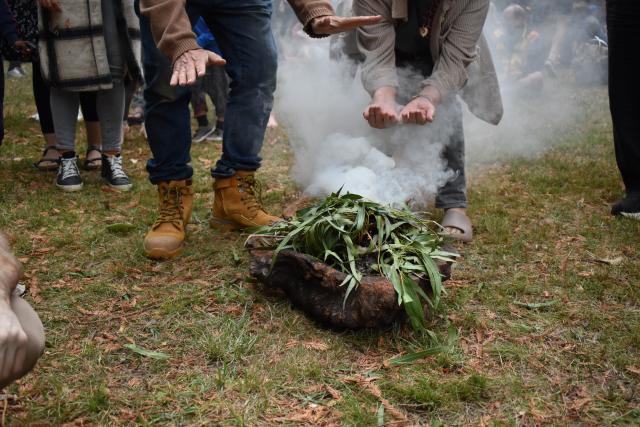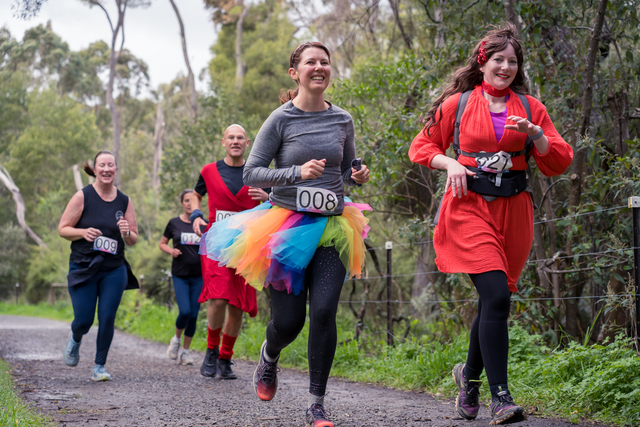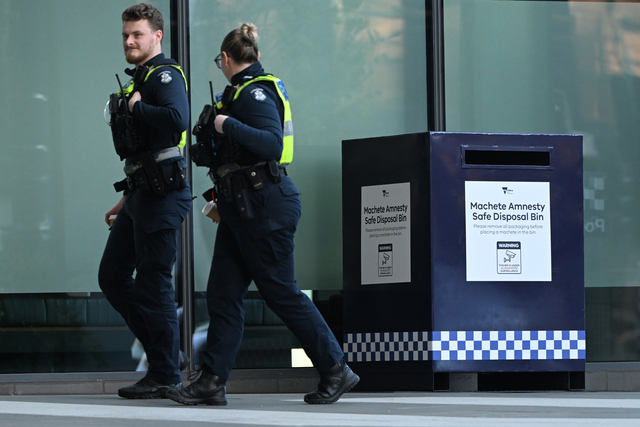Following two articles in previous weeks, Star Mail delved into the Chin community, one of the ethnic groups in Myanmar, and the story of Healesville Rural Australians for Refugees (RAR) president Dr Bob Rich as a refugee from Hungary.
Chin State is located in the southern part of northwestern Myanmar, bordered by Bangladesh and India to the west, Rakhine State to the south, and Magwe and Sagaing Divisions to the east.
Chin is the primary ethnic group of the Chin State.
Kham Lian, originally from the Chin State, migrated to Australia in 2008 as a Myanmar refugee.
Mr Lian said he and his family fled from their country to India due to the intense fear of brutal persecution towards ethnic minorities by the Myanmar military.
“Human rights were non-existent, and conflicts persisted under the dictatorship of the military regime. We then took refuge in Mizoram, which is the closest place we could seek the hidden place away from the Myanmar military,” he said.
“We lived there for several years before finally seeking and obtaining official recognition from the United Nations High Commissioner for Refugees (UNHCR) in New Delhi, India. We lived in New Delhi under the protection of the UNHCR until we were randomly selected and offered a place to migrate, where we could rebuild our lives and no longer live in fear of military persecution.
“We did not have any choice about where we would migrate; we just accepted the opportunity offered by the UNHCR to migrate under the humanitarian program.”
Thanks to the humanitarian program by the UNHCR, Mr Lian could get a humanitarian visa 200 granted.
The visa allows holders to stay in Australia permanently with work and education rights.
Mr Lian said they were incredibly fortunate and blessed to have the opportunity to migrate and settle in Australia.
“We felt very grateful and excited to come here, but it was also overwhelming, as we had never been on a plane before, did not speak English, and came from a different culture with a different appearance,” he said.
“It was an intense mix of emotions and a very challenging experience, especially after enduring the terrible fear of the military.
“Nevertheless, we were extremely excited and felt blessed to rebuild our lives in Australia, free from the fear of persecution.”
The man from Chin State finally became an Australian citizen in 2023.
“We were very fortunate to become Australian citizens, and I am proud to call myself Australian,” Mr Lian said.
“I was born in Myanmar, and I was a citizen by birth, but I did not have equal rights and opportunities in my own country due to extreme discrimination based on my ethnic group, my Christian faith, and the fact that I was not part of the military bloodline generation.”
Despite having been granted a permanent visa, which has given Mr Lian many more opportunities compared to other refugees, it doesn’t mean Mr Lian hasn’t faced any hardships along the new adventure.
For Mr Lian, a migrant who came to Australia as an adult who couldn’t access enough education when he was younger, it was hard to find his own career pathway to survive in the new environment.
One of the main challenges he faced was he didn’t have any guidance from anyone who could advise him for his future.
“When I first came to Australia, I was 21 and I approached a few universities and institutions to find out what I could do for my future,” Mr Lian said.
“But at the time, I couldn’t understand the education system in Australia because of my English and the lack of academic experience.
“I had no one who could advise me on what to do and what would be best for my pathway. My parents don’t speak English, and I couldn’t fully absorb the information from the counsellors.”
The family from Chin State first settled in Goulburn in New South Wales in 2008, where Mr Lian started taking his English course.
And then they moved to Melbourne in 2010 to get more opportunities, and Mr Lian started taking a certificate III at Swinburne Croydon.
“After that, I took a diploma in nursing at Swinburne Lilydale and finished it in 2012. And I went straight to RMIT University and finished my bachelor of nursing in 2017,” he said.
“It was really challenging because even after I finished one level and moved to the next level, I still couldn’t compete with other students who grew up here because the level of knowledge that I have and the others have was totally different. My English was still limited as well.”
Despite more challenges he had to go through, including culture shock, lack of sense of belonging at some stages, language barriers, he is grateful for the new life, strongly holding onto the values of being good citizens, working hard and enjoying the blessings.
The Chin community has grown rapidly across the Yarra Ranges, particularly in Mooroolbark and the surrounding areas.
According to the idcommunity website, Chin Haka, one of the dominantly spoken languages in Chin State, as well as being Mr Lian’s mother tongue, ranked third in languages other than English used at home in 2021, following Mandarin and Italian.
The number dramatically increased from about 650 in 2016 to over 1000 in 2021, proving the recent Chin population growing across the Yarra Ranges, the most increased home used language other than English over those five years.
Although Yarra Ranges Council refused the Healesville RAR’s invitation to join other local governments for the national campaign Back Your Neighbour to support people seeking asylum, the council ensured that it has done and will continue to do its best to support the Chin community and other people seeking asylum in the shire.
Yarra Ranges Council communities director Leanne Hurst said the Chin community has strengths and resilience the council wants to protect and enhance, and the council has been working to develop culturally-responsive programs.
“In Yarra Ranges, we have a strong track record of place-based community development work,” she said.
“This has led us to work closely with community organisations, leaders and residents to strengthen and build capacity across our large municipality.
“Over the past few years, we have increasingly focused on the needs and contributions of our newer refugee communities, and particularly those from the Chin State in Myanmar.”
Initiatives have included: Funding the Australian Chin Community Eastern Melbourne’s Homework Club through a four year partnership grant; support and mentoring with grant governance; facilitating supported playgroups; hosting the Outer East Communities of Burma / Myanmar Support and Collaboration Forum attended by over eighty representatives of community, health and multicultural organisations, VicPol, schools and leaders of communities of Burma/Myanmar; coordinating opportunities for collaboration in response to the forum including partnerships with Foundation House and Youth Support and Advocacy Services; supporting the establishment of refugee services in Mooroolbark; and, responding to issues arising within these communities through facilitated conversation.
Now, Mr Lian, the proud Australian who came from Chin State and has studied nursing, works with Each Community Health in Ringwood East, supporting other refugees who face similar challenges that he experienced.
“I work with Each Community Health as a bicultural worker, and I am part of the Refugee Health Team,” he said.
“My role is to support and engage the migrant community in navigating health services, promoting health literacy, and assisting them in building better social development.
“Each has offered a range of health services where the community can access support more easily, and the Refugee Health Programs provide substantial health support to the new migrant community settled in this region.”
Despite its invitation to the Yarra Ranges Council to join the Back Your Neighbour campaign being refused, Healesville RAR will continue to push for rights and recognition of refugees locally, and with its president a refugee himself, that purpose is one close to home.
Dr Bob Rich is a migrant from Hungary who arrived in Australia in January 1957 as a refugee at the age of 13, and so he knows first-hand the hardships of seeking refuge.
“I was transported to Australia for a term of my natural life in order to prevent a murder. Both my stepfather and I knew that when I was big enough, either he would murder me or I would murder him,” he said.
“So my uncle organised and escaped during the Hungarian Revolution. My uncle organised an escape in two trucks, and my stepfather gave him a small fortune in jewellery and gold, and said, ‘Take the boy on the first truck, and if anything happens, this is for his upkeep.’”
Unfortunately, his uncle stole all the money that his stepfather gave.
Then, Dr Rich was housed in a migrant hostel, where he could start his new life and receive a lot of support.
Dr Rich said there’s a huge contrast between how he was received and how current people seeking asylum are.
“I went to high school for five years for free. I was even given a uniform, although I didn’t know at the time that my principal bought it out of his own pocket. I thought it was from the government, but it wasn’t,” he said.
“Later, I went to university on a Commonwealth scholarship with a living-away-from-home allowance, and I could live on that. During holidays, I got a job for a bit extra, but I could live on the scholarship.
“There was discrimination, particularly against people from Greece and Italy, but officially there was every support.”
Dr Rich suggests refugees could help fill holes in the labour market.
“Right now we have a desperate shortage of people in the building trades, aged care, various professions, and many (refugees) are highly talented and they could if they weren’t treated like they were criminals,” he said.
Check out more information on how Healesville RAR supports people seeking asylum on its Facebook page at facebook.com/HealesvilleRAR

